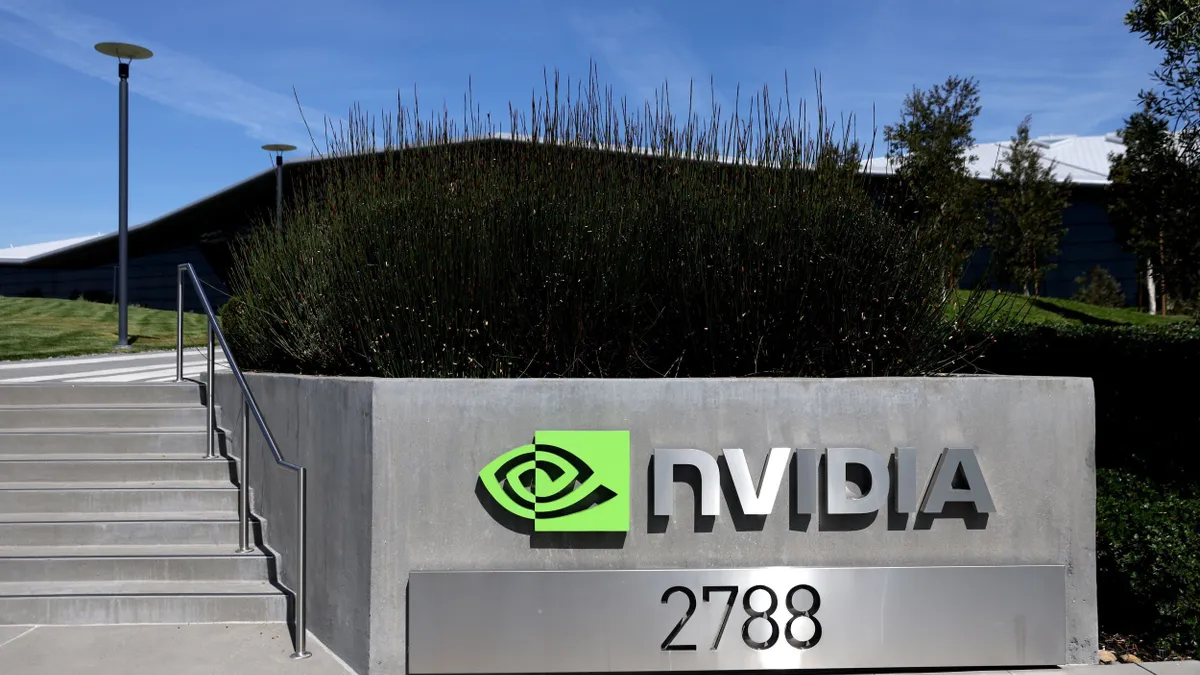Chipmaker Nvidia is seeking to shore up confidence in its ability to meet demand as supply concerns regarding AI chips rise.
“We are not near any point in time ... where we are seeing any type of a slowdown, but [what] we are seeing right now is demand continues to be fueled a lot due to the size of [AI] models, the complexity of inferencing and we are still getting ready for our next [chip] architecture, Blackwell,” Nvidia CFO Colette Kress said, speaking at a keynote address at the UBS Global Technology and AI Conference in Scottsdale, Arizona on Tuesday.
Nvidia, the second most valuable publicly-traded U.S. company, has grown into a technology powerhouse fueling the rise of AI giants, including Microsoft, Google, Meta and Elon Musk’s xAI.
Despite her optimistic tone, Kress acknowledged some supply pressure on the company’s latest graphics processing unit, Blackwell. Considered an important building block for AI systems, graphics processing units are a type of chip designed to carry out rapid calculations.
“What we see in terms of our Blackwell [chip], which will be here this quarter, is also probably a supply constraint that is going to take us well into our next fiscal year for several quarters from now,” she said, while noting that this does not imply a slowdown.
Nvidia, which has a market capitalization of $3.4 trillion, reported net income of $19.3 billion in its third quarter of fiscal year 2025, up 109% year over year. The company reported revenue of $35.1 billion for the quarter, up 94% year over year. Nvidia projects revenue of approximately $37.5 billion for the following quarter.
Timothy Arcuri, UBS analyst and conference moderator, said the company was shipping more Blackwell chips than it anticipated three months ago, to which Kress responded that the company is working to improve supply chain efficiency for its AI chips.
“What you're seeing with our Blackwell architecture, some of them we will completely build inside of our supply chain,” said Kress.
Kress’s remarks echo comments by Nvidia CEO Jensen Huang during the company’s Q3 2025 earnings call last month, in which he acknowledged that demand exceeds supply for the Blackwell chips.
Nvidia has 80% of the market share for AI chips, but still faces challenges from competitors, including Advanced Micro Devices, which expects to see AI chip sales of $5 billion this year, the Wall Street Journal reported in November. Large customers like Amazon and Microsoft have also been working on developing their own AI chips.
Arcuri also asked Kress about the company’s cash flow plans, noting that Nvidia has generated about $56 billion in the cash flow over the past four quarters.
Nvidia “isn’t a fan” of excess cash, Kress said, noting the company is considering mergers and acquisitions and other new business opportunities.
“It leads to thinking about new types of business models that we may want to add and focus on in new areas of AI,” she said.












